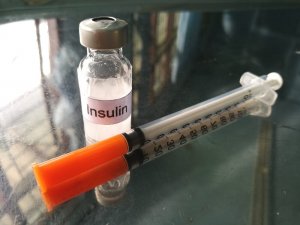Over $600 million in
verdicts & settlements
for our clients.
$185,000,000
Verdict
ERNST & YOUNG
Accouting Malpractice
$150,000,000
Verdict
EXXON MOBIL
Gas Leak
$25,000,000
Verdict
BELL ATLANTIC
Business Fraud
$11,800,000
Verdict
PERSONAL INJURY

Every year, nearly 1.3 million injuries and more than 300 deaths occur in the United States as a result of medication related errors. According to the U.S. Pharmacopeia Medication Errors Reporting Program, insulin is involved in close to half of these cases. Although it is a commonly used drug, insulin, when improperly utilized, has the potential to cause conditions such as hypoglycemia, decreased renal function, gastrointestinal distress, weight gain, cardiovascular challenges, seizure, coma and even death. Starting at the prescription phase and followed by the repackaging, dispensing, proper administration and essential monitoring required to maintain proper blood sugar levels, any medication error along the way may be considered an act of medical negligence which can result in the responsible healthcare provider being held liable for damages in a court of law.
Side Effects of Improper Insulin Use
Overdoses of insulin may result in any of the following side effects:
- Hypoglycemia – Mental confusion, increased heart rate (tachycardia), weakness, anxiety and/or sweating may occur; repeated hypoglycemic episodes are associated with long term neurological impairment and renal dysfunction.
- Seizure, Coma and/or Death – Extreme hypoglycemic reactions may trigger seizures, cardiac arrhythmia, severe neurological challenges and/or coma; death can result if the condition is left untreated.
Insufficient insulin dosing can lead to any of the following:
- Hyperglycemia – When left untreated, hyperglycemia increases the chances of cardiovascular disease, nerve or kidney damage, cataracts and/or damage to the retina (which can result in blindness), tooth, gum and/or skin disorders and problems with the joints, bones and/or feet.
- Ketoacidosis – The excessive build up of ketones in the blood stream can occur when insufficient insulin is present; this condition causes the pH of the blood to become overly acidic and can lead to internal organ damage, coma and even death if not promptly treated.
Frequent Causes of Wrong Dose Insulin Medication Errors
Patients may unknowingly be administering or receiving an incorrect insulin dose if any of the following preventable errors has occurred:
- The prescribing physician has abbreviated the word “units” with a “U” – This surprisingly common error can result in a 10 fold increase in insulin dosage if the “U” is mistaken for a zero.
- Confusion surrounding adjustable insulin doses – Patients who are required to take blood glucose samples in order to determine an appropriate insulin dose are prone to a greater number of errors than those that maintain a consistent dose; the software utilized with electronic prescription methods may also be incompatible with adjustable insulin doses, leading to an increase in errors.
- A tuberculin syringe has been used to inject insulin – Use of improper equipment to administer any medication will increase the chances of error; replacing an insulin syringe with a tuberculin syringe may lead to an insulin overdose.
- Confusion among packages of similar appearances – Lack of adequate care may result in a patient receiving an insulin product that appears similar to but is not identical to that on their prescription.
- A healthcare worker has administered insulin intended for another patient – Particularly within large hospital settings, one patient may receive the insulin intended for another patient, leading to a severe underdose or overdose.
Lack of Patient Education Leads to a Significant Number of Errors
Since patients are required to self-inject their insulin doses on most occasions, clear instruction and education provided by a medical professional is of the utmost importance in ensuring proper medication delivery. Sadly, many patients receive little more than a few minutes of dedicated instructional time, during which period they are expected to absorb numerous “life or death” pieces of information. Patients must be taught how to correctly read a syringe, proper injection techniques and the importance of using fresh needles, proper draw-up and insertion techniques and more. The timing of each insulin dose is also critical and the risks involved with delaying a dose by even an hour or two must be presented. In addition, patients who will be using an adjustable dose of insulin need to understand the importance of regular blood glucose monitoring and the appropriate corresponding insulin dose that is to follow.
Who is Responsible for Consumer Education?
While it is much easier to make a clear connection between negligent behavior on the part of a medical professional when the medication error occurs before the patient receives their prescription in hand, responsibility becomes more vague when a consumer makes an insulin related error in their own home. Who is ultimately responsible for ensuring the safe and appropriate handling of this critical yet dangerous medication? The physician clearly has a degree of responsibility in the matter and documentation of informed patient consent should be included in the patient’s medical record as an indication that adequate educational material regarding any required insulin medication was provided. If any question of negligence or lack of appropriate action exists and has resulted in a severe medication error, the assistance of a professional attorney can be invaluable in receiving compensation after an injury or death of a loved one.
Who Can You Trust with Your Case?
Have you or a loved one been injured due to negligence? We want to help. Don’t hesitate to contact us if you believe you have a case; time is an important factor. Interested in learning more? Get in touch with us so we can better evaluate and serve your needs in getting the justice your loved one deserves. You may very well be entitled to compensation.

Call For a Free Consultation









